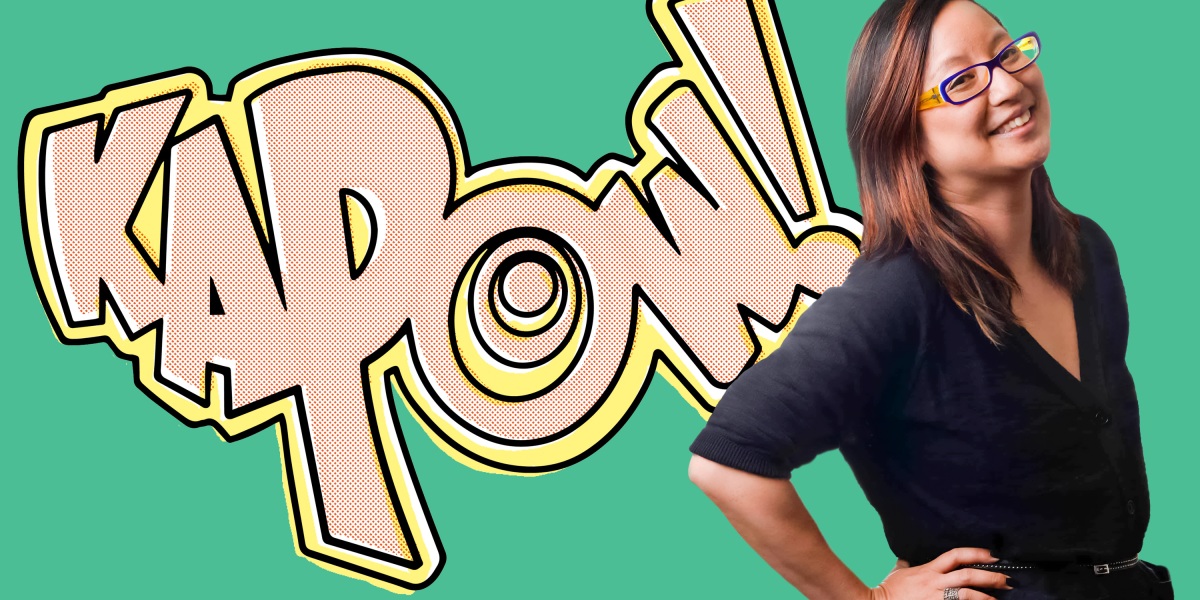
The Institute has proffered inspiration in other ways. At a Baltimore Comic Con where she was on a panel, Chu reconnected with Wisdom Coleman ’91. Coleman talked about his experiences as a combat pilot in Afghanistan and the women who served alongside him there. The lives of those women became the basis for Chu’s first Wonder Woman story, about a female pilot who wonders whether her own heroics are in fact the work of the Lady of the Golden Lariat. (They’re not.)
Characters like that female pilot and Resnick-Baker, the astrophysicist-astronaut at the heart of the Summit series, dress as Chu conceived them: like real women doing real work. Characters that Chu did not create, by contrast, often are rendered in the hypersexualized style she detests. There’s not much she can do about it. “A lot is dependent on the editor and the editor’s selection of the artist,” she says. One sign of progress, she observes, is the less exploitative approach of comic books targeting young audiences or produced by a growing cadre of female editors.
Chu sometimes will push back, as when an artist working on one of her books depicted Poison Ivy in a thong. “I literally was on a call where I walked them through the Victoria’s Secret catalogue and told them what would be appropriate,” she says. “Somewhere between bikini and boy shorts is what I was imagining.” (The artist made the change.)
Today Chu gets so much work from mainstream publishers that she lacks time for Alpha Girl, which has not released a new title in several years. (Lee went on to write for television, notably for the Syfy and Amazon Prime Video series The Expanse.) She wants to revisit Alpha Girl, but “I keep getting stuff where I am like, I have got to write that because it is pretty cool,” she says. “Green Hornet? Yeah, I want to write Green Hornet! Wonder Woman? Of course!”
Chu also has ventured into more traditional publishing. In 2019 and 2020 Viking released two volumes of Sea Sirens, a graphic novel for middle graders created by Chu and her friend Janet K. Lee, the Eisner Award–winning illustrator. Adapted from a 1911 underwater fantasy by Wizard of Oz author L. Frank Baum, Chu and Lee’s updated version reimagines the heroine, Trot, as a Vietnamese-American girl in Southern California. Her adult male companion is now a talking cat. “The idea of a young girl wandering around with a strange older man having adventures raises a lot of questions these days,” says Chu.
There are other demands on Chu’s time. Three years ago, she was recruited to write two episodes for the Netflix series DOTA: Dragon’s Blood, based on the popular video game. (A second, undisclosed Netflix program is in the works.) She’s also starting work on a comic series based on the Borderlands video games. On a different track, another MIT friend, Norman Chen ’88, who now runs the Asian American Foundation, recruited Chu to produce an overview of Asian-American history for grade-school students.
If Chu eventually does revive Alpha Girl, she may enjoy a new generation of readers and contributors. About 10 years ago the Girl Scouts created a Comic Artist badge, and Chu was flooded with requests to address the troops. “In a few years, a lot more women will have had this exposure,” she says. “If they are anything like me, they will get hooked.”
